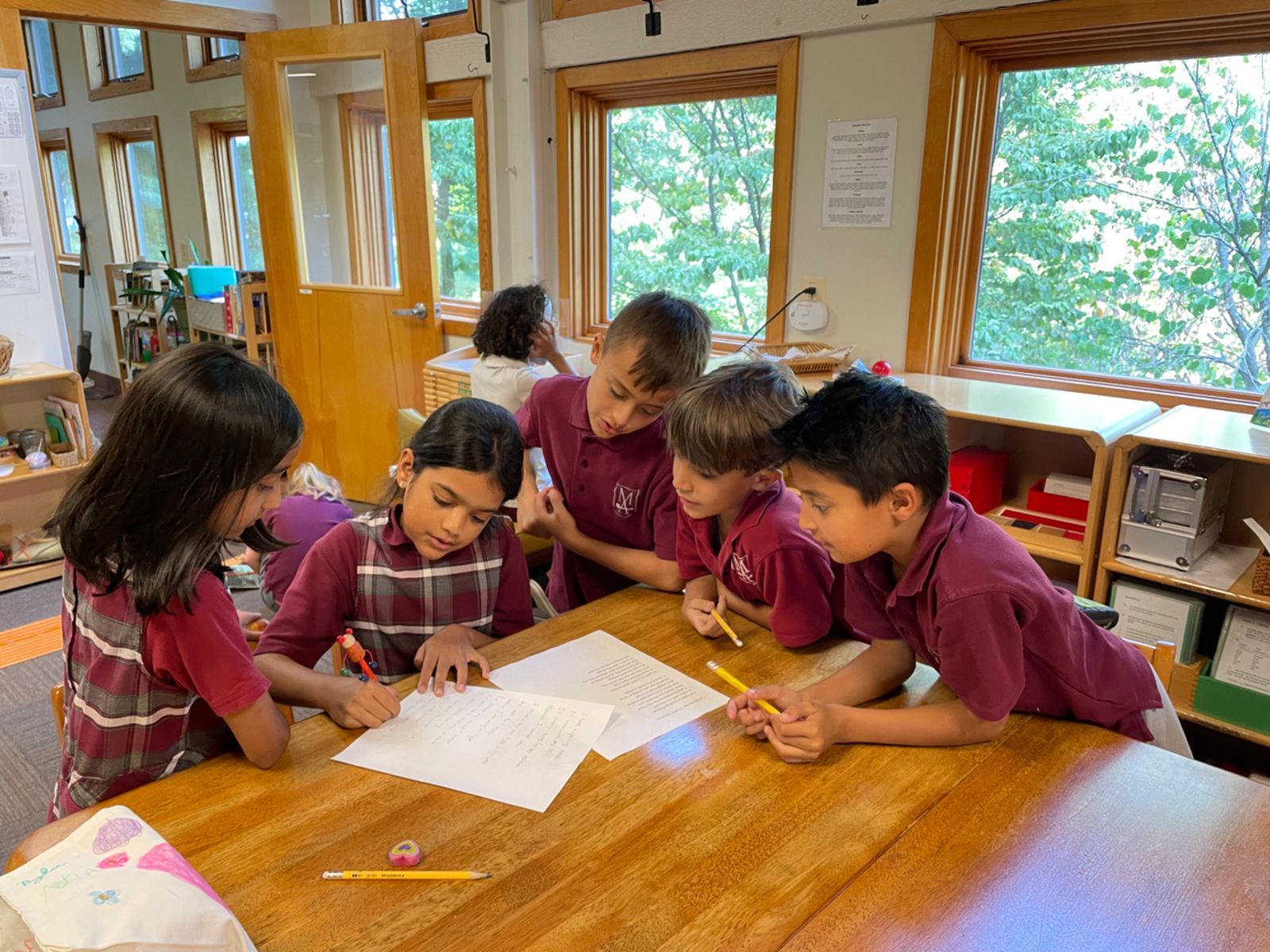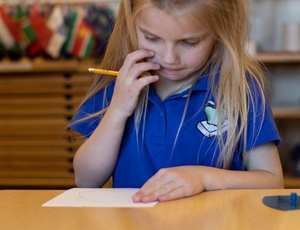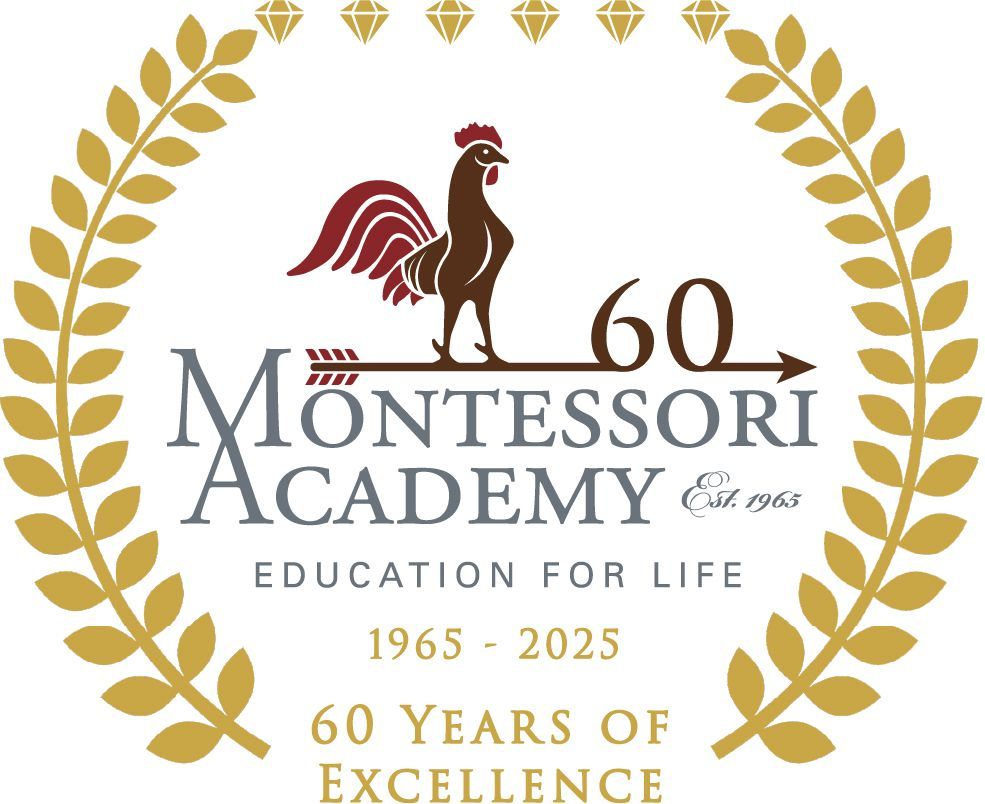
It is easy to focus on the academic benefits of Montessori education. In fact, an August 2023 meta-analysis of 32 studies highlights how students in Montessori programs, in comparison to students in traditional schools, show higher performance in language, math, general academic ability, and executive functioning. Clearly, the Montessori method has a powerful impact on student performance. Academic vigor, though, isn’t the only thing that matters in our children’s lives.
The social-emotional benefits of a Montessori education are also incredibly significant. This is especially apparent at the elementary level when children are figuring out who they are as social beings. The near-peer learning in mixed-age Montessori elementary programs helps our young people develop their collaboration strategies, problem-solving skills, and conflict-resolution techniques. Plus, Montessori environments support what our children are going through developmentally. We are working with human nature, rather than against the strong forces that drive our young people.
Collaboration
At the elementary age, it is all about the “we” because children of this age have a strong gregarious nature. They want to do things together and thus group work is an integral part of Montessori elementary classrooms. In the process of working together on projects, elementary students practice important communication skills and learn how to lift each other up in their group work. We want elementary children to know that collaboration will take us further than competition, so we help children learn how to spurn each other on in supportive ways.
As they develop these collaborative skills, each individual comes to recognize not only the power of the group, but also what it means to belong to a group in a meaningful way. As children experience themselves as part of a group, they are engaged in important social construction.
Practice Society
This social construction can be seen as the way that elementary-age children begin to practice what it means to create societal structures. In Montessori, we sometimes think about elementary communities as “practice societies”.
It is “practice” because children are engaging in something they haven’t already mastered, which means they aren’t going to be good at it at first! We recognize that children need to work at creating their “practice society” and there will be gradual improvement. This also means that there will be mistakes, including conflict and hurt feelings. In Montessori communities, we have the time and space to support children as they work through this process. We value the importance of this social development!
The word “society” comes from the Latin root for companion. Thus, being in society implies having friendly associations with others. We want elementary children to find joy in associating with each other. During the elementary years, children benefit from real jobs that contribute to their community and begin to appreciate how to make sure everyone gets their needs met collaboratively. So, we support children in this work of forming a society based on joint cooperative work in a positive, productive environment.
Hero Worship
Elementary children look up to power, strength, and beauty in whatever form that occurs. Because they look toward heroes, we use the elementary years to introduce a variety of different types of heroes (even non-human ones!).
In looking toward heroes, children are thinking about how to actualize their own potentials. They become very observant of others. They love to research and look into the histories and stories of their heroes. They begin to recognize individual strengths and apply those to their own practice society, community, and family. They even begin to invite each other to work based on their strengths. As a result, individual children begin to feel truly seen. Eventually, they even begin to recognize that the strength of the group is their own strength. Hero worship drives all kinds of prosocial development.
Part of hero worship also involves stepping into leadership roles in the community, which means both learning how to lead and learning how to follow. Rather than just acquiesce, Montessori students develop a joyful obedience. They find joy in belonging to the group and being part of something together.
Building & Solidifying Skills
In the process of working with peers of varying ages, children make connections with different types of people and realize that learning can happen from those who are both older and younger! Through connection and conversation, children practice their patience, listening skills, and communication strategies. As classmates engage collaboratively on both projects and classroom responsibilities, they learn how to work toward one goal, lean into each other’s strengths, prioritize tasks, and organize their time. Part of this happens because in mixed-age elementary classrooms, students don’t have the stress of comparing themselves to peers of the same age. They have space and time to develop their skills, collaborate based on interests, and practice what they have recently mastered.
We see much of this social and emotional growth in how Montessori children interact with people both in school and out in the broader community. Because they have had the experience of adults as partners and allies, we see that Montessori graduates know how to seek help, ask questions, and generally converse with people of all ages.
But don’t just take our word for it! Come visit our school to see how our students are developing and practicing the social-emotional skills that lead to their success as thriving, whole people in the world. Schedule a tour today!














